Dear blog reader,
This month we are joined by Professor Alessandra Turini Bolsoni-Silva, a leading researcher in behavior analysis and social skills training. I first came to know about Alessandra’s incredible work through my friend and colleague, Joao H. de Almeida (who contributed a blog of his own a while back — click here), who works with Professor Bolsoni-Silva at São Paulo State University in the city of Bauru in São Paulo state, Brazil. As you will see from her story below, what she has accomplished thus far in her career is really incredible, contributing significantly to developing evidence-based interventions to improve social interactions in various populations, including parents, educators, and individuals with behavioral challenges. With a strong foundation in Applied Behavior Analysis (ABA), her research integrates principles from multiple behavioral models to enhance intervention efficacy and long-term outcomes, another wonderful example of the kind of message Dermot and I are advocating for the field with this blog series. Enjoy!
Colin
About the author:

Dr. Alessandra Turini Bolsoni Silva is a Senior Associate Professor at São Paulo State University (UNESP-Bauru) and an internationally recognized researcher in applied behavior analysis. She earned her PhD in Psychology from the University of São Paulo (USP) before completing a postdoctoral fellowship in mental health at the Faculty of Medicine, USP. Before this, Alessandra attained her master’s degree in Special Education from the Federal University of São Carlos (UFSCar), where she also completed her undergraduate studies. She currently heads a CNPq (National Council for Scientific and Technological Development) research group called the Study and Research Group on Applied Behavior Analysis and Social Skills (GEPEACAHS), within which her primary research focuses on social skills training, parental interventions, and behavioral assessment, and in particular, functional analysis and intervention development. Dr. Bolsoni-Silva has authored numerous scientific articles and books, contributing to developmental psychology, clinical behavior analysis, and behavioral intervention strategies. She is also an active member of scientific committees dedicated to advancing behavior analysis and evidence-based practice.
Expanding Frontiers in Behavioral Analysis Application: Dissemination and Development of Social Skills Training Interventions (clique aqui para a versão em português deste blog)
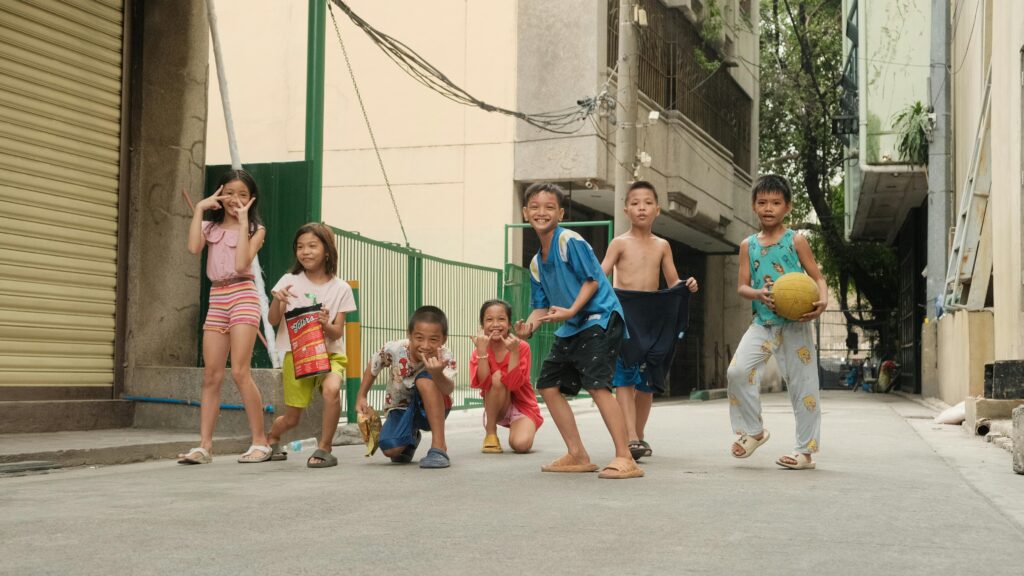
Social interactions play a central role in human development, enhancing the quality of our relationships and overall well-being. From childhood, our competence in social skills influences how we learn, communicate, and handle daily challenges. Promoting these skills, particularly in family and educational contexts, has been widely recognized as a crucial variable for preventing and intervening in behavioral problems (Bolsoni-Silva & Loureiro, 2020). Given this scenario, Psychology has played a fundamental role in developing structured programs to strengthen communication, empathy, and conflict resolution, provide solutions to improve social interaction quality and foster significant behavioral transformations. In this context, my professional journey began, driven by a curiosity to understand human behavior, leading me to choose psychology to explore these issues deeper.
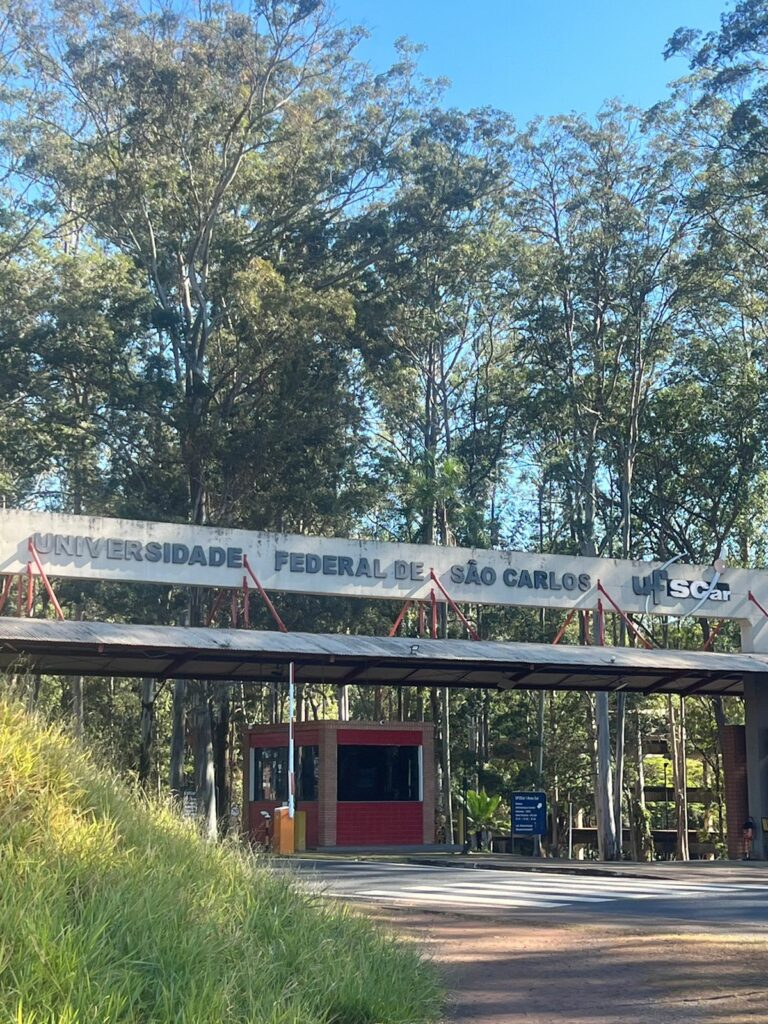
I started my psychology degree at the Federal University of São Carlos (UFSCar) in 1994 as part of the first class of the newly established program. I had no idea how profoundly this experience would impact my life. Even then, the course emphasized research and knowledge production while offering a wide range of professional opportunities. I have always been curious about how things work, and I found my place in this field by becoming a research assistant from my second year onwards. This opportunity allowed me to study Psychology and Behavior Analysis with great names, including Prof. Deisy das Graças de Souza, Prof. Julio de Rose, Prof. Antonio Damasio Abib, and Prof. Maria de Jesus Dutra dos Reis. I have been fascinated since my initial contact with behavior analysis. However, everything suddenly made sense when I explored the book Coercion and Its Fallout by Murray Sidman (1995/1989) in a course with Prof. Julio, and About Behaviorism by Skinner (2006) with Prof. Abib. I decided to dedicate my studies and work to behavior analysis. Additionally, my internships with Prof. Hélio Guilhardi at the current ITCR-Campinas and, after graduation, with Prof. dos Reis were fundamental experiences that shaped my repertoire in clinical psychology, focusing on practice, assessment, and research.
Even before entering university, I had always been interested in child behavior and parental education, which motivated me to explore this topic. Alongside my academic training, I encountered the theoretical and practical field of Social Skills Training (SST), which opened the possibility of investigating parent-child interactions in preventing and addressing behavioral problems. My first experience in this area was evaluating a social skills training (SST) program for parents, conducted as my undergraduate thesis (Bolsoni-Silva et al., 2000). This study involved ten sessions with four couples in a pre-experimental design. The results indicated improved parental and general social skills and reduced complaints about child behaviors. However, despite the intervention, some reported problems persisted, with parents acknowledging that although some specific parenting practices were inappropriate, they still used them occasionally.

In Brazil, within the field of SST, this study was the first attempt to integrate social skills training with parenting. Thus, behaviors commonly associated with this area were taught (Del Prette & Del Prette, 2001), such as (a) communication skills (asking and answering questions, producing and receiving feedback, praising, initiating, and maintaining conversations); and (b) assertive coping skills (expressing opinions, handling criticism, expressing dissatisfaction, requesting behavior changes, managing others’ anger, making and refusing requests, admitting mistakes, and apologizing). Additionally, instructional objectives relevant to parents of children with behavioral problems were incorporated (e.g., Webster-Stratton, 1985), such as ignoring minor misbehaviors, giving short and clear commands, maintaining parental consistency, and setting limits.
To better understand parent-child interactions and their impact on child behavior, my master’s (under the guidance of Prof. Dr. Almir Del Prette – UFSCar) and doctoral studies (under the guidance of Prof. Dr. Edna Maria Marturano – USP-RP) explored these dynamics within developmental psychology, comparing children with and without behavioral problems in terms of parental social and educational skills, as well as other parenting practices. During my master’s research (1998-2000; Bolsoni-Silva & Del Prette, 2002), we found that, compared to parents of children with behavioral issues, parents without such problems more frequently engaged in conversations, expressed emotions and opinions, kept promises, and reported parental agreement. Both groups valued setting limits and found admitting mistakes and apologizing difficult, but parents of children with difficulties admitted making more mistakes in their interactions with their children.
In my doctoral research (2001-2003; Bolsoni-Silva, 2003; Bolsoni-Silva & Marturano, 2006), we expanded participants’ sample size to nearly 100, including parents of preschoolers with and without behavioral problems, assessed using psychometrically validated instruments. This study compared groups regarding parental social skills, children’s social skills, and marital relationships. The results fortified previous findings and revealed that parents of children without behavioral issues talked more with their children and exhibited greater diversity and quality in communication. These parents used conversations to set limits, discuss various topics of interest to their children, and express positive emotions. Additionally, they demonstrated more parental consistency, agreement with their spouses, and adherence to promises made to their children. The study highlighted the importance of evaluating whether parents expressed opinions and emotions and how they did so. Among parents of children with behavioral difficulties, negative emotions were more frequently expressed aggressively, and opinions were imposed rather than discussed.
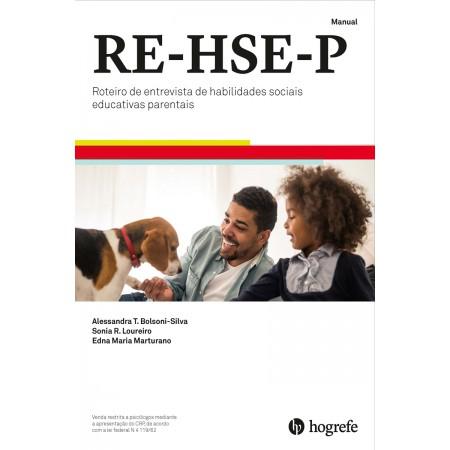
During my doctoral studies, I developed instruments that were later refined and validated, culminating in the Parental Educational Social Skills Interview Script (RE-HSE-P; Bolsoni-Silva, Loureiro & Marturano, 2016), the Socially Skilled Responses Questionnaire for Parents and Teachers (2020), and more recently, the Marital Relationship Questionnaire (QRC; Bolsoni-Silva et al., 2024). The RE-HSE-P was validated during my postdoctoral research with Prof. Dr. Sonia Regina Loureiro (2008-2009) at the Faculty of Medicine at USP, where I expanded the original instrument to assess parent-child interactions functionally.
Meanwhile, I joined São Paulo State University (UNESP-Bauru) in 2001, the same year I began my doctoral studies, to teach courses in development, behavior analysis, and behavioral therapy. In 2002, I initiated interventions with parents/caregivers alongside final-year psychology interns. Given my continued work in social skills—an area with an eclectic theoretical foundation—I wrote a paper to position social skills training within behavior analysis (Bolsoni-Silva, 2002), later expanding on these ideas in a publication with Prof. Kester Carrara (Bolsoni-Silva & Carrara, 2011).
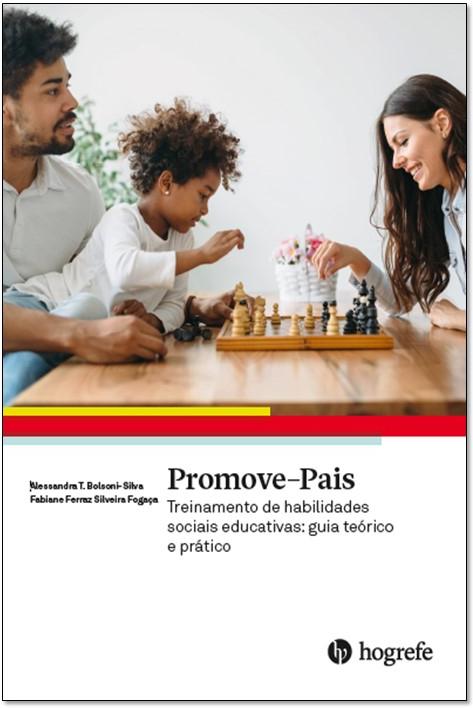
Recognizing that my undergraduate thesis intervention yielded insufficient results, coupled with my clinical training and empirical data from my master’s and doctoral studies, I saw the need to develop a new intervention program for parents. After joining UNESP, I had the opportunity to study more about the Collaborative Model by Webster-Stratton and Herbert (1993), the Constructional Model by Goldiamond (Goldiamond, 2002/1974), and the Coercive Model described by Patterson, Reid, and Dishion (2001), all of which influenced the way I redesigned the program. Considering that behavioral problems in parental interaction can be maintained by attention, escape from challenging situations (e.g., challenging school tasks), avoidance of negative emotions, and contexts where rules are complicated to apply and reinforce, it was evident that teaching parents communication, affection, and limit-setting behaviors can help children and adolescents receive attention and support for emotional regulation and problem-solving. The Promove-Pais program (Bolsoni-Silva & Fogaça, 2018) was conceived at this point. The program adopts the collaborative model, formulates individualized teaching objectives monitored throughout the intervention, and maintains flexibility in teaching social andeducational skills and parenting practices, focusing on solving problems presented by parents.
Each session encourages both positive parent-child interactions and strategies for setting limits. For instance, in communication sessions, discussions focus on the importance of discussing topics of interest to children and on using this skill to set boundaries, promote self-awareness by asking how they feel, understand the reasons behind aggressive behaviors, and help them reflect on conflicts. These sessions allow parents to advise on positive problem-solving behaviors, express support, and describe logical consequences. Each session contributes another “brick” to the construction of positive parenting, equipping parents with tools to improve interactions, foster emotional closeness with their children, and prevent or resolve behavioral problems. The program also includes a book as bibliotherapy, offering models for parents to read in advance and discuss in sessions regarding their applicability in their interactions with their children.
Before the final version of the Promove program was established, multiple investigations were conducted, with data collected from internship settings since 2002. For example, in 2008 (Bolsoni-Silva et al., 2008), the program consisted of 22 sessions covering the previously mentioned topics, producing positive outcomes (such as increased self-awareness, expressing gratitude and compliments, expressing positive emotions, and refusing inappropriate requests). However, it was too long and was subsequently reduced to 17 sessions, demonstrating (Bolsoni-Silva, Silveira & Marturano, 2008) the functional relationship between using positive parenting practices for setting boundaries and reducing reported behavioral problems.
With the support of São Paulo Research Foundation (FAPESP), in 2007, I briefly described the parent program and its evaluation beyond the university setting in collaboration with Prof. Edna Maria Marturano, published in Temas em Psicologia. The study (Bolsoni-Silva & Marturano, 2010), involving 15 parents and conducted in a school environment, demonstrated a reduction in behavioral problems (with 80% of cases falling outside the clinical range in psychometric assessments), a decrease in harmful parenting practices, and an increase in parental social skills and positive practices.
Thus, Promove-Pais was developed in a Brazilian context, incorporating data generated for our population and drawing from diverse literature on development, parenting, social skills, and behavior analysis. The program integrates key components previously identified as crucial in the parenting literature, such as responsiveness and demandingness (Baumrind, 1966; Maccobi & Martin, 1983), the use of logical and natural consequences (Hoffman, 1975), moral behavior and rule-teaching (Hoffman, 1975; Gomide, 2006), monitoring and teaching compliance (Patterson et al., 2002), reducing conflicts (Barkley, 2002; Patterson et al., 2002), and enhancing positive interactions (Webster-Stratton, 2016; Patterson et al., 2002). Parents are not expected to act as co-therapists for their children; instead, they are the focus of the intervention, collaborating in generating and promoting solutions while understanding their behavioral contingencies and those of their children in a dynamic interaction.
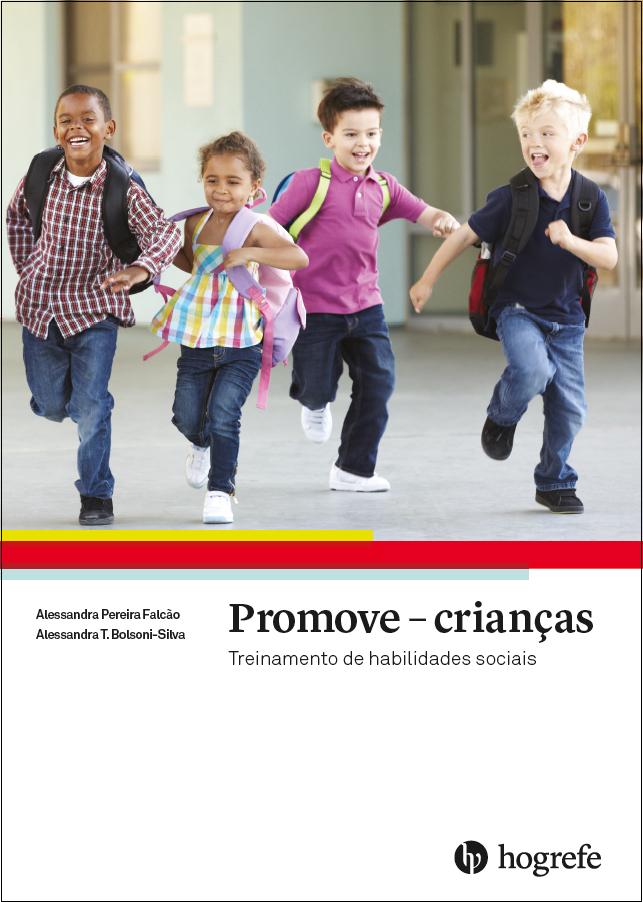
Following the foundation of the Graduate Program in Developmental and Learning Psychology (UNESP-Bauru), new research and publications have emerged involving parents, caregivers, and guardians as participants. These studies aimed to refine the program for better outcomes, describe therapeutic interactions, and apply it in contexts considering specific child and adolescent difficulties (internalizing and externalizing problems, ASD) through different modalities (group, individual, in-person, online) and research designs, especially single-subject multiple baseline designs. The results thus far have been promising, showing that most children and adolescents cease to score in clinical ranges for behavioral problems, increase their social skills, and exhibit an evident increase in positive practices and a reduction in negative ones, fostering balanced and close relationships between parents, caregivers, and children/adolescents. Simultaneously, I have continued conducting group and psychometric research with Prof. Sonia Loureiro and other colleagues linked to the ANPEPP Social Skills group and CNPq research productivity grants, aiming to isolate further predictors of social competence, behavioral problems, and mental health.
The experience with parent-focused interventions also served as a model for additional intervention programs aimed at children, teachers, university students, couples, and women with anxiety and depression, all under the Promove label, following the same rationale as Promove-Pais.
In conclusion, the Promove programs adhere to several principles: (1) the need for comprehensive assessments of social interactions for functional molecular and ecological analyses, as well as behaviorally equivalent functional objectives for each participant, even in group settings, to allow continuous monitoring and adjustment in each intervention session; (2) the use of the collaborative model to establish close, non-hierarchical, balanced interactions in terms of reinforcement, supporting participants in improving positive social interactions and problem-solving; (3) flexibility in adapting the program to participants’ needs; (4) a therapeutic stance that is less directive, employing empathy and reflective questioning to help participants describe contingencies (self-awareness), formulate and revise rules as tacts, facilitating adherence, self-regulation, and generalization; (5) the use of behavior therapy procedures such as modeling, shaping, and differential reinforcement through various therapeutic strategies, including video modeling, reflective activities, bibliotherapy, role-playing, and homework assignments; (6) a structure similar to social skills training (SST), organizing sessions around homework discussion, interactive discussion of the theme, skills training, evaluation, and new homework assignments. Depending on the demand, the programs have been evaluated both as standalone interventions and as components of more substantial interventions.

In the GEPEACAHS research group (click here for more information about the group and its current research focuses), ongoing studies focus on Promove-Parents, Promove-ASD Parents, Promove-University Students, Promove-Couples, Promove-Women’s Health, and Promove-Children, alongside group studies to identify predictive variables. These findings also inform my work as a clinical supervision instructor, where, whenever possible, interventions are applied and assessed at the University’s Applied Psychology Center.
Over the years, various research projects have refined the Promove programs, extending them to different populations, including children, teachers, university students, couples, and women with anxiety and depression. These evidence-based interventions have contributed significantly to improving social interactions, promoting behavioral change, and enhancing mental health outcomes, reinforcing the importance of applied behavior analysis in diverse contexts.
References
Barkley, R. A. (2002). Transtorno do déficit de atenção/hiperatividade – TDAH: guia completo para pais, professores e profissionais da saúde. Porto Alegre: Artmed.
Baumrind, D. (1966). Effects of authoritative parental control on child behavior. Child Development, 37, 887-907.
Bolsoni-Silva, A. T. (2002). Habilidades sociais: breve análise da teoria e da prática à luz da análise do comportamento. Interação em Psicologia, 6, 233-242.
Bolsoni-Silva, A. T. (2003). Habilidades sociais educativas, variáveis contextuais e problemas de comportamento: comparando pais e mães de pré-escolares (Tese de Doutorado). Curso de Pós-Graduação em Ciências, Universidade de São Paulo, Ribeirão Preto – SP.
Bolsoni-Silva, A. T., & Carrara, K. (2011). Habilidades Sociais e Análise do Comportamento: compatibilidades e dissensões conceitual-metodológicas. Psicologia em Revista, 16(2), 330-345. https://doi.org/10.5752/P.1678-9563.2010v16n2p330
Bolsoni-Silva, A. T., & Del Prette, A. (2002). O que os pais falam sobre suas habilidades sociais e de seus filhos? Argumento, 4(7), 71-86.
Bolsoni-Silva, A. T., & Loureiro, S. R. (2020). Evidence of validity for Socially Skillful Responses Questionnaires – SSRQ-Teachers and SSRQ-Parents. Psico-USF, 25(1), 155–170. https://doi.org/10.1590/1413-82712020250113
Bolsoni-Silva, A. T., & Marturano, E. M. (2006). A qualidade da interação entre pais e filhos e sua relação com problemas de comportamento de pré-escolares. In Estudos sobre habilidades sociais e relacionamento interpessoal (pp. 89-104). São Paulo: Casa do Psicólogo.
Bolsoni-Silva, A. T., & Marturano, E. M. (2010). Evaluation of Group Intervention for Mothers/Caretakers of Kindergarten Children with Externalizing Behavioral Problems. Revista Interamericana de Psicología/Interamerican Journal of Psychology, 44(3).
Bolsoni-Silva, A. T., Del Prette, A., & Del Prette, Z. A. P. (2000). Relacionamento pais-filhos: Um programa de desenvolvimento interpessoal em grupo. Psicologia Escolar e Educacional, 3(3), 203–215.
Bolsoni-Silva, A. T., Loureiro, S. R., & Marturano, E. M. (2016). Roteiro de entrevista de habilidades sociais educativas parentais (RE-HSE-P). São Paulo: Hogrefe Cetepp (Teste Psicológico).
Bolsoni-Silva, A. T., Salina-Brandão, A., Versuti-Stoque, F. M., & Rosin-Pinola, A. R. (2008). Avaliação de um programa de intervenção de habilidades sociais educativas parentais: um estudo-piloto. Psicologia: Ciência e Profissão, 28, 18-33.
Bolsoni-Silva, A. T., Silveira, F. F., & Marturano, E. M. (2008). Promovendo habilidades sociais educativas parentais na prevenção de problemas de comportamento. Revista Brasileira de Terapia Comportamental e Cognitiva, 10(2), 125-142.
Bolsoni-Silva, A. T., & Loureiro, S. R. (2020). Behavioral problems and their relationship to maternal depression, marital relationships, social skills and parenting. Psicologia: Reflexão E Crítica, 33, 22. https://doi.org/10.1186/s41155-020-00160-x
Bolsoni-Silva, A. T. (2024). Formação em Terapia Analítico-Comportamental: Relato de experiência em uma clínica-escola. Comportamento em Foco. Vol 16, pp 1-11.
Silva, A. T. B., Aguiar Pizeta, F., Rosa Franco, V., & Regina Loureiro, S. (2024). Questionário de Relacionamento Conjugal: Evidências de Validade e Consistência Interna: Evidências de Validade e Consistência Interna . Perspectivas Em Psicologia, 27(1). Recuperado de https://seer.ufu.br/index.php/perspectivasempsicologia/article/view/69314
Del Prette, Z. A. P., & Del Prette, A. (2001). Psicologia das relações interpessoais: vivências para o trabalho em grupo. Petrópolis: Vozes.
Gomide, P. I. C. (2006). Inventário de Estilos Parentais. Modelo Teórico: Manual de Aplicação, Apuração e Interpretação. Petrópolis, RJ: Vozes.
Hoffman, M. L. (1975). Moral Internalization, Parental Power, and the Nature of Parent-Child Interaction. Developmental Psychology, 11(2), 228-239.
Maccoby, E., & Martin, J. A. (1983). Socialization in the context of the family: parent-child interaction, 1-10. In: E. M. Heteringthon (Org.), Mussen Manual of Child Psychology 4. New York: Wiley.
Patterson, G. R. (2005). The Next Generation of PMTO Models. The Behavior Therapist, 28(2), 27–33.
Patterson, G. R., Reid, J. B., & Dishion, T. J. (2002). Antisocial boys: ESETec.
Sidman, M. (1995). Coerção e suas implicações (G. G. Souza, Trad.). Campinas: Editorial Psy II. (Trabalho original publicado em 1989).
Skinner, B. F. (2006). Sobre o behaviorismo (10ª ed.). São Paulo: Cultrix.
VanRyzin, M. J., Kumpfer, K. L., Fosco, G., & Greenberg, M. T. (2016). Family-Centered Prevention Programs for Children and Adolescents: Theory, Research, and Large-Scale Dissemination. Incredible Years® Series: A Developmental Approach (pp. 42-67).
Webster-Stratton, C. (1985). Predictors of treatment outcome in parent training for conduct disordered children. Behavior Therapy, 16(2), 223–243. https://doi.org/10.1016/S0005-7894(85)80048-4
Webster-Stratton, C., & Bolsoni-Silva, A. T. (2024). Formação em Terapia Analítico-Comportamental: Relato de experiência em uma clínica-escola. Comportamento em Foco, 16, 1-11.

Pingback: Ampliando Fronteiras para Aplicação da Análise do Comportamento: Uma História de Difusão e Desenvolvimento de Intervenções para o Treinamento de Habilidades Sociais – BEHAVIOR ANALYSIS BLOGS